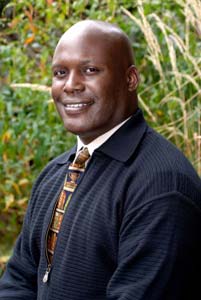Main Street Must Become Green Street Too!
Share
 by Pete Van, Jr.
by Pete Van, Jr.
The green economy is more than just a political campaign issue for the Green Party. In order to effectively address the problem of global environmental repair, it must be recognized as an on going earth concern that will require our attention long after the past November election fades from memory.
The issue of ongoing education, training and accountability must be addressed. Funding for initial expenditures is noble, but major reductions in greenhouse gas emissions will in general occur over the long term as a result of both short-term and long-term global repair initiatives. Where will funding come from to complete global repair?
 The Green Jobs Act, authorized at $125 million is an initial pilot program to identify needed skills, develop training programs, and train workers for jobs in a range of renewable energy and energy efficiency industries. It targets a broad range of populations for eligibility, but has a special focus on creating ëgreen pathways out of poverty.í The Energy Efficiency and Conservation Block Grant Program, authorized at $2 billion, is a grant program for local governments to use for retrofitting their communities to save energy and combat global warming. It creates tens of thousands of green-collar jobs in the process.
The Green Jobs Act, authorized at $125 million is an initial pilot program to identify needed skills, develop training programs, and train workers for jobs in a range of renewable energy and energy efficiency industries. It targets a broad range of populations for eligibility, but has a special focus on creating ëgreen pathways out of poverty.í The Energy Efficiency and Conservation Block Grant Program, authorized at $2 billion, is a grant program for local governments to use for retrofitting their communities to save energy and combat global warming. It creates tens of thousands of green-collar jobs in the process.
In addition to the cost of funding the initial expenditures and the task of keeping local governments accountable, there is also the need to work with the human dynamic. These concerns include locating trained technicians, maintaining sophisticated communication networks, preparing curriculum that will address environmental wisdom, preparing teachers and students to use emerging technology in beneficial ways, and then making certain that students can apply what they have learned in school to their day to day lives.
Green collar jobs may address two crucial concerns facing our survival – restoring the environment and making a living. Green collar jobs may provide equal opportunity and democratic steps toward economic self-sufficiency, but only for those with access. The consequences of the emerging green economy may be severing. If a significant segment of our society is denied equal access to the financial gains from the green economy those denied access would again suffer educationally, economically and culturally.
Green collar jobs may provide equal opportunity and democratic steps toward economic self-sufficiency, but only for those with access.
To alleviate these green collar equity concerns, the sustainable business community and Green Party political activists should address disparities in access to green collar jobs.
- Be sensitive to cultural, ethnic and racial diversity when developing green economy educational curriculum, software, and digital content.
- Provide on-going funds for training, support, and instruction for green collar jobs.
- Give non-traditional students access to scholarships if they make a commitment to pursue a career in the green collar industries.
- Lend laptop computers to students in rural and urban communities who are committed to the Green Party political values and platform.
- Provide free environmental/science library books to low-income neighborhoods.
- Develop funding formulas that equalize environmental education spending across poor school districts.
- Work closely with the Hip-Hop community to include green collar jobs for all people.
- Create a green collar union.
Conclusion
Although the emerging green economy promises to uncover new worlds of knowledge and employment opportunities, this same emerging green economy threatens to drive a wedge into the efforts to create economic sustainability in urban America. In this emerging green economy, knowledge is wealth, and access to both the knowledge and wealth is not available to all. The disparity may not seem apparent at first, but with underinvestment in the workforce development system and neglected academic infrastructure, these jobs will not reach the many unemployed in urban and rural America.
Pete Van on what the First 100 Days of a Green Administration would look like




